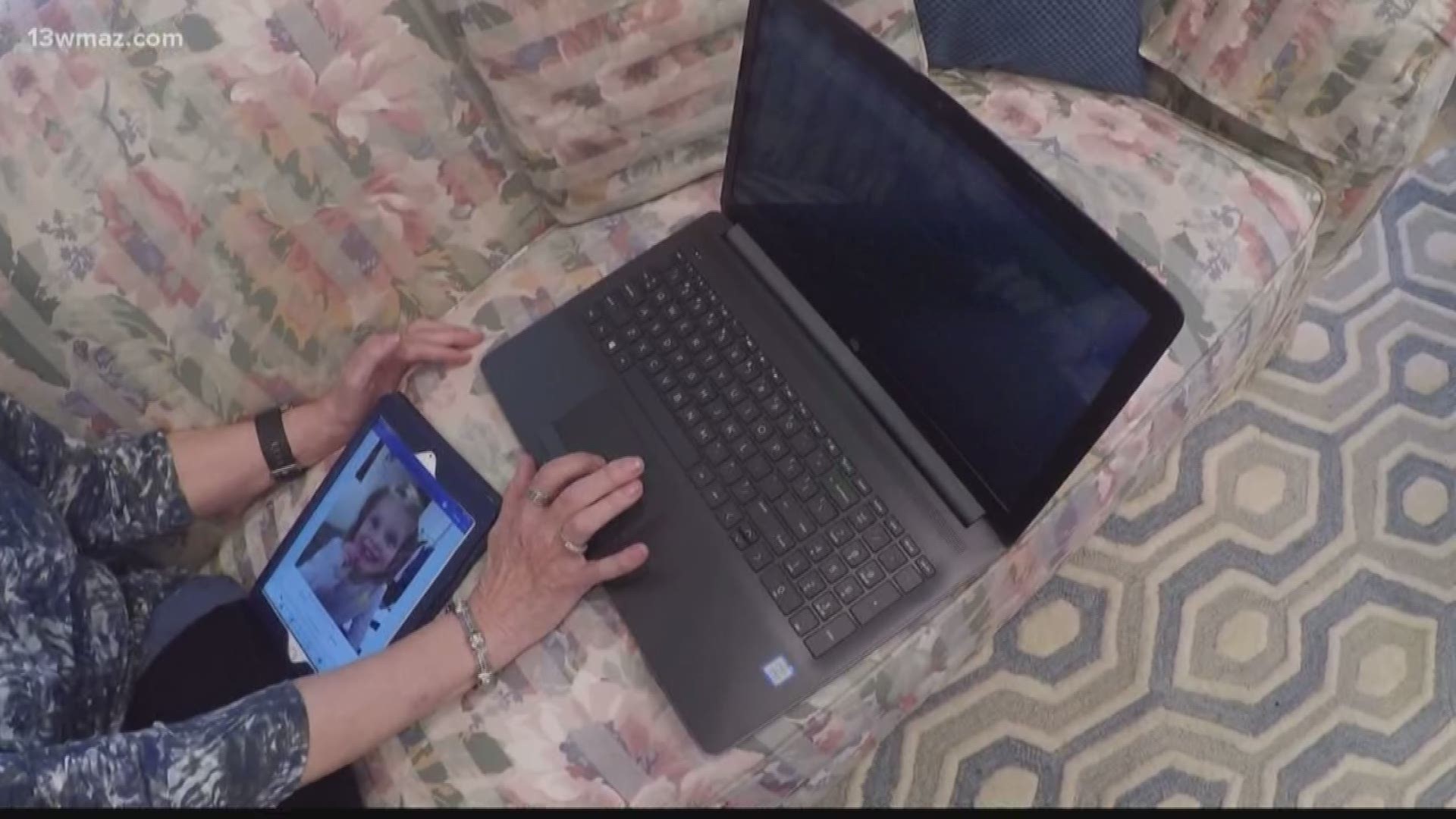MACON, Ga. — A Warner Robins woman wants to warn others after a series of scam calls that tied her up for hours. Sabrina Burse spoke to the woman and some tech experts to find out how you can protect yourself.
Glenda Simpson says ads usually pop up while she's on social media while using her iPad and computer.
"They have all these advertisements, and some of them are really cool things, but I have ordered several things that did not have return addresses," said Simpson.
One day, she says she got a call from a caller ID labeled Apple. She says the man was claiming that she had been hacked and that was causing her gadgets to run slowly.
"I said, 'How do I know you are who you say you are?' He gave me his Apple ID badge number. He gave me his phone number," said Simpson.
She says he also gave her his location. Technology expert Wes Reagan at Quality Computer Systems says that was the first sign of a scam call. Apple doesn't call customers directly. He says online ads allow scammers access to personal information.
"It's running rampant right now, and the two common obviously are going to be Microsoft and Apple," said Reagan.
Simpson says the man claimed he could protect her computer and bank information, so he asked her to put $6,000 on a prepaid card and she would be reimbursed later. Reagan says that was another red flag.
"They want to trick you and tell you, 'Hey, let me in and let me take care of this problem for you,'" said Reagan.
After several phone calls and speaking with the man for several hours, Simpson says she finally hung up.
"I don't want someone else to go through this, someone that may not catch it early enough," said Simpson.
She says after following her gut, faith, and advice from a family friend, it was a lesson well learned.
Reagan says to avoid posting personal information online and suggests using a company such as LifeLock to guard yourself.

